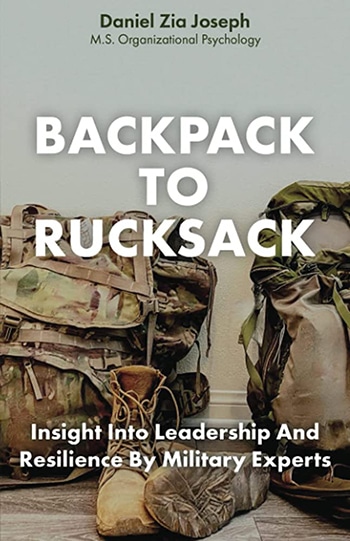Podcast Summary
Investing in Family Culture During Middle Years: Investing time and effort in creating a positive family culture during the middle years can lead to stronger bonds and happier families. Happy families have a shared vision, prioritize regular connections, and have a culture of resilience.
Creating a happy and connected family goes beyond just the early years of diapers and sippy cups. According to Bruce Filer, author of "The Secrets of Happy Families," there's a crucial middle period where families can develop a positive culture that lasts for decades. Filer was inspired by his own desire to create a strong family bond and the unique human trait of having a long window of time between weaning and reproduction. He believes this period is crucial for children to learn important social skills and attachment to family. Research shows that happy families have a shared vision, prioritize regular connections, and have a culture of resilience. We can learn from businesses and challenges like GoRuck to apply these principles to our own families. And yes, family dinner is important, but it's just one piece of the puzzle. In summary, investing time and effort in creating a positive family culture during the middle years can lead to stronger bonds and happier families.
Adapting and growing as a family: Families thrive when they embrace adaptability, effective communication, mutual respect, and healthy conflict resolution, prioritizing ongoing improvement through the agile development mindset.
High functioning families share the ability to adapt continually. Contrary to my initial approach as a father, which involved setting rigid rules and principles, I've learned through research and experience that families benefit from flexibility. This concept, known as "agile development," originated in the business world but can be applied to family life. Agile development emphasizes responding to changing circumstances, collaboration, and the prioritization of ongoing improvement. By embracing this mindset, families can better navigate challenges and foster stronger connections. Other common traits of happy families include effective communication, mutual respect, and the ability to manage conflict in a healthy way. Overall, the key to a happy family is not a one-size-fits-all solution, but rather a commitment to growth, adaptability, and openness to new approaches.
Adapting to Family Changes with an Agile Approach: Effective communication and Agile methodology, emphasizing flexibility and collaboration, help families adapt to changes and thrive.
Families, like businesses and other aspects of life, need to be adaptable to change in order to thrive. The speaker shares his experience as a parent, noting how children grow and bring new challenges, requiring constant adaptation. He also mentions the increasing involvement of fathers in parenting and the shift towards more equal roles for mothers in the workforce. The speaker highlights the importance of communication and the Agile approach, which emphasizes flexibility and collaboration, as effective strategies for managing family changes. Agile, originating in Japan 25 years ago and now widely adopted in businesses, sports teams, and other fields, is a methodology that prioritizes responding to change over following a rigid plan. The speaker suggests that families can benefit from this approach by fostering open communication and being responsive to the evolving needs of its members.
Fostering Responsibility in Children with Agile Practices: Implementing morning lists and family meetings inspired by Agile principles can improve family dynamics, encourage decision-making skills, and foster responsibility in children from a young age.
Implementing simple yet effective practices like morning lists and family meetings can significantly improve family dynamics and instill responsibility in children from a young age. These methods, inspired by Agile principles, encourage children to check off their tasks and make decisions, fostering their ability to take ownership of their actions. Regular family meetings, such as the one held every Sunday night, provide a platform for open communication and problem-solving, allowing everyone to voice their ideas and work collaboratively towards solutions. By starting these practices early, families can establish a routine that fosters responsibility and decision-making skills, ultimately preparing children for the challenges they will face as they grow older.
Establishing family routines and clear communication channels: Consistent family routines and clear communication can prevent unexpected interruptions and instill values in children, leading to a more organized and harmonious family life.
Having a consistent family routine and setting clear communication channels can help reduce unexpected interruptions and ensure everyone is on the same page. The speaker uses the analogy of a family meeting to emphasize the importance of having a set time and place for discussing important matters, preventing requests or distractions at inconvenient times. Additionally, having a family mission statement can help instill values in children and provide a sense of unity and purpose within the family. Initially, the idea of a family mission statement may seem too corporate or unnatural, but it can serve as a valuable tool for teaching and reinforcing important values. Ultimately, establishing these routines and communication channels can lead to a more organized and harmonious family life.
Invest in family relationships: Actively engage in conversations and create special moments to strengthen family bonds and increase overall happiness.
Families require intentional effort to thrive. Just like we put time and energy into improving ourselves, our jobs, and our hobbies, we must also invest in our relationships with our family members. By actively engaging in conversations about values and creating special moments together, we can strengthen our family bonds and increase overall happiness. The speaker shared an example of implementing this strategy in his own family by having a pajama party and discussing their values as a group. While it's not necessary to worship this list every day, having it as a visual reminder can serve as a reminder to prioritize family time and connection.
Investing in Family Values: Focusing on consistent communication and prioritizing family relationships can lead to a stronger and happier family, even amidst challenges. Simple solutions like family dinners are important, but productive conversation only makes up a small portion of mealtime.
Investing time and effort into planning and articulating your family values can lead to a stronger and happier family, despite common challenges like sibling fights. While simple solutions like family dinners are important, research shows that productive conversation only makes up a small portion of mealtime. Instead, focusing on consistent communication and prioritizing family relationships can have a significant impact on overall happiness. Remember, you don't have to have all the answers, but having a clear vision for your family can be a powerful tool.
Prioritizing Family Time: Finding What Works Best for Your Family: Communicate, adapt, and focus on positive experiences to create happy family memories and strengthen connections, regardless of schedule or location.
Prioritizing family time is crucial for a happy family, regardless of the specific schedule or location. American families rank low in regular family meals, and it's essential to find the time that works best for each family. Communication and adaptation are key, as is focusing on positive memories and experiences. The Go Rock challenge, an extreme group bonding experience, can help create happy family memories and strengthen connections across generations. Adaptability, open communication, and shared activities are the foundation for a contented family.
Creating shared experiences and overcoming challenges together: Engaging in activities that require teamwork fosters collaboration and strengthens family bonds
Creating shared experiences and overcoming common challenges together can help strengthen family bonds. This can be achieved through various means, such as engaging in activities that require teamwork, like the "K-pops challenge" or a family play, or participating in extreme sports. The idea is to find a common obstacle, or "log," that requires everyone's effort to move past it, fostering collaboration and connection. Bruce Filer, a family expert and author, emphasizes the importance of communication, adaptability, and getting out and playing together to build positive memories and stronger family relationships. To learn more about Bruce's work and resources, visit his website, BruceFiler.com, or follow him on social media. His book, "The Secrets of Happy Families," offers practical advice and concrete takeaways for building happier families.
Engage with the content and share your thoughts: Leave a review to enhance personal growth and keep the conversation going, embracing traditional masculine virtues and being open to new ideas and experiences
Brett McKay encouraged listeners to engage with the content and share their thoughts by leaving a review on their preferred podcast platform. The podcast offers valuable insights and tips on various aspects of manliness, and by engaging with it, listeners can enhance their personal growth journey. Remember, staying manly involves not only embracing traditional masculine virtues but also being open to new ideas and experiences. So, keep learning, stay curious, and keep the conversation going. And until next time, this is Brett McKay, signing off and wishing you a manly day.












